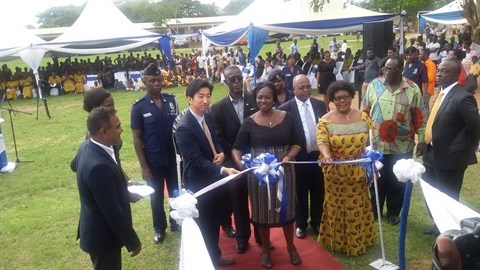
Top stories






More news


Marketing & Media
Ads are coming to AI. Does that really have to be such a bad thing?














The SPIS was launched at the Dago LA Junior High School to complement the efforts by the Ministry of Education in the implementation of information and communications technology (ICT) integration in primary schools.
With a vision to reach over 2.5 million students in Africa by 2015, Samsung's initiative focuses on the deployment of ICT infrastructure, professional development of educators, content development and management, school administration and management as well as sharing best practices in the integration of ICTs in enhancing learning and teaching in the classroom.
Harry Park, Samsung Electronics West Africa managing director, urged the community to look after the investment. "The endless supply of information on the internet contributes immensely to broadening the perspectives of children today, improving their lives and in so doing improving the communities in which they live. Sadly, most children in Ghana and some other African countries lack the necessary ICT education with which they can compete with the rest of the world."
The SPIS is a 40-foot shipping container that Samsung equips with 24 Samsung laptops plus one for the teacher, a multi-purpose Samsung printer, a 50-inch electronic board, a server, internet access and the solar panels. All these devices are optimised for use in a solar-powered environment.
The e-board allows for cross-group collaboration between and among educators and learners across geographical boundaries. It can run video conferencing, access the internet, and connect to the computers in the container, all simultaneously, providing an interactive learning and teaching experience for both the educators and learners.
The schools are built for use in remote rural areas with little or no grid electricity infrastructure and are easily transportable via trucks. The fold-away solar panels provide enough energy to power the classroom's equipment for up to nine hours a day. The solar-panels are made from rubber instead of glass to ensure they are robust and durable enough to survive long journeys across the country.
Samsung has partnered with the Korea Education and Research Information Service (KERIS), an organisation which promotes public education through the use of ICT in schools, to pre-install content on the computers. KERIS also provided the necessary training designed to equip the teachers with requisite skills in curriculum development and integrate technology with this curriculum.
The progressive solar powered internet schools concept places African countries like Ghana, Kenya, Rwanda, Ethiopia, Tanzania, Gabon and South Africa at the forefront of nations adopting and integrating ICT in their education models.